Ownership and provenance of literary manuscripts
Medieval manuscript volumes often contain inscriptions of names or signatures, which may offer some clues as to who owned or at least handled them. Sometimes these are accompanied by dates. Sometimes they are neatly written but sometimes they are extremely informal, and take the form of pen trials (scribbles made to test out a new nib), such as this example from the volume containing Speculum Vitae (WLC/LM/9).
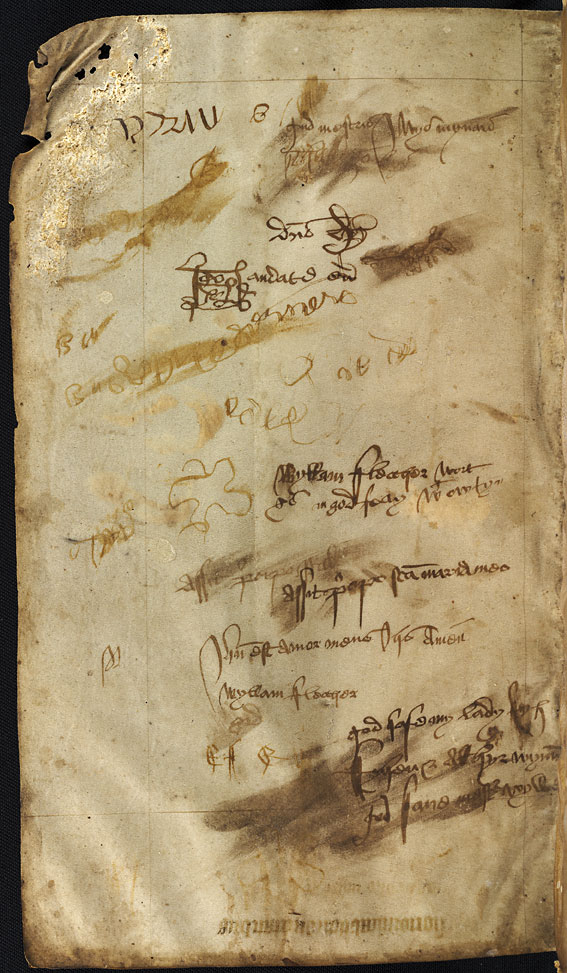
Pen-trials, WLC/LM/9, f. 257v
It can be hard to identify these people. It does not necessarily follow that those who wrote their names into books were also the owners of those books: they may have been readers within a household or circle of acquaintances who had access to the book, but did not personally own it.
The thirteenth-century manuscript of Le Roman de Silence contains a clearer ownership inscription: ‘Cest liure est Madame dela val’ (‘This book belongs to Madame de Laval’). The family are thought to be the Laval family of north west France.
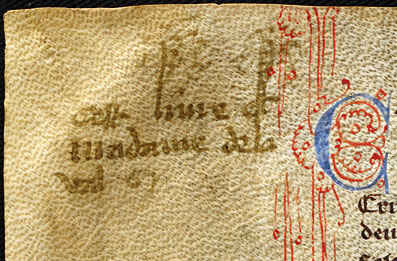
Ownership inscription in volume of French romances and fabliaux, WLC/LM/6, f. 249v
The manuscript of John Gower’s Confessio Amantis came into the custody of The University of Nottingham as part of the collection which had belonged to the Willoughby family of Wollaton Hall. It includes the words ‘By me Henrye Willoughbye’ in a sixteenth-century hand (perhaps a pen-trial), indicating that it had been in the family’s ownership from a relatively early point, though we cannot be sure that it was commissioned by a family member.
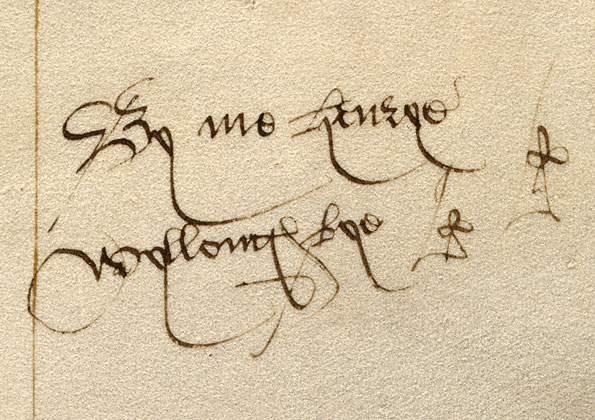
Name of Henry Willoughby in WLC/LM/8, f. 16r
Heraldic schemes are another possible way to identify patrons and owners. A late fifteenth-century prayer book contains three heraldic shields on the rear flyleaf, which have not been fully identified. The shields contain devices associated with various families, including the families of St John, Beckingham, Servington and Fynderne. However, it has been impossible to date to trace the original owner of the book or the way in which it came into the possession of the Willoughby family who later owned it. It should also be noted that it was perfectly possible for a later owner who acquired the manuscript to have his or her arms added to the decorative scheme. Heraldic devices may only give partial information about early owners.
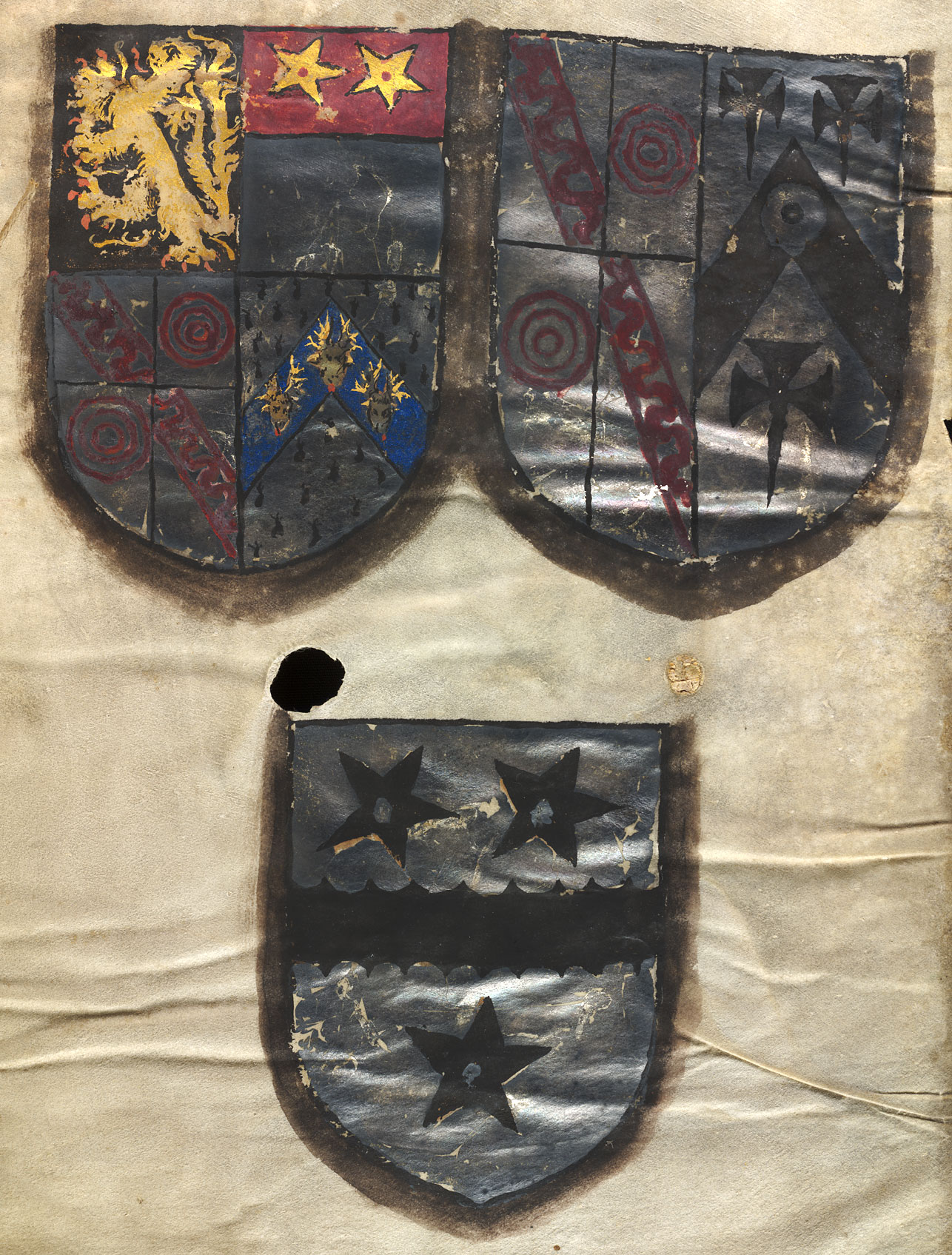
Shields inside prayer book, WLC/LM/11, f. 47r
There is plenty of evidence of ownership in the fifteenth-century Rushall Psalter (Me LM 1). A poem announcing John Harpur’s ownership of the book is found on folio 20v. The Harpur family coat of arms is worked into the manuscript’s decorative scheme on folio 21r. An inhabited initial on folio 79r shows King David, the Old Testament psalmist and harpist. This is appropriate for a Psalter, but is also probably a pun on the Harpur surname of the book’s owner. This manuscript is a composite one, and a number of leaves containing secular texts and notes were added to the Psalter at a relatively early point in its history. These leaves include further confirmation of the family associated with the book pertained, such as a prose history of Rushall on folios 3A-5Ar. Rushall in Staffordshire was the home of John Harpur’s wife and the Psalter was made for use in the chapel he endowed there. The manuscript came into the University’s collections in 1951 from the Mellish family, descendants of John Harpur.

Detail from ownership poem in the Rushall Psalter, Me LM 1, f. 20v
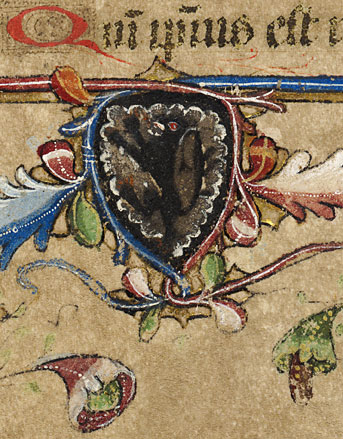
Coat of arms in the Rushall Psalter, Me LM 1, f. 21r
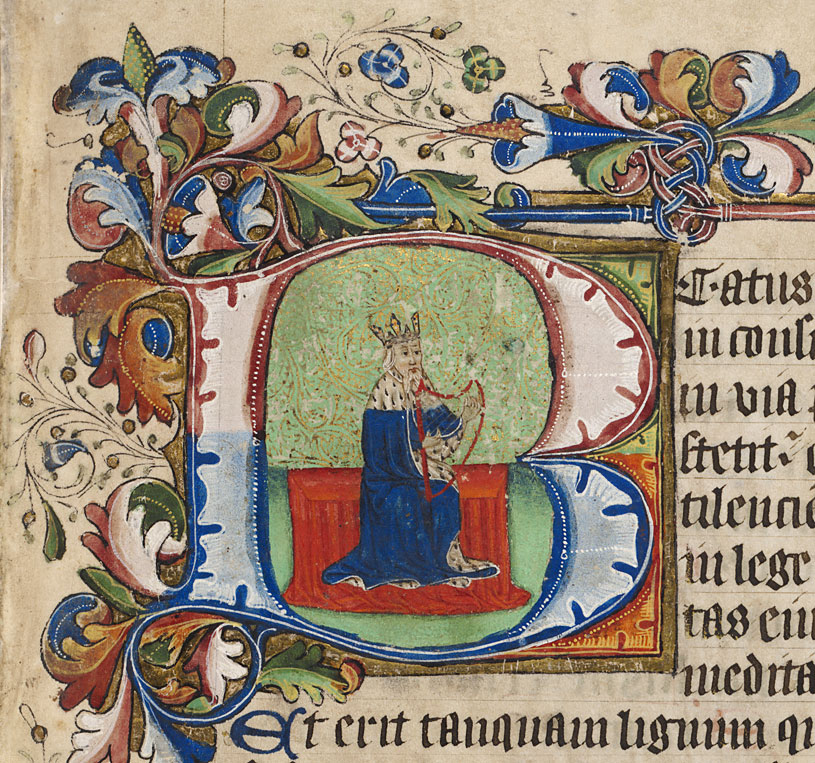
Initial showing King David with his harp, in the Rushall Psalter, Me LM 1, f. 79r
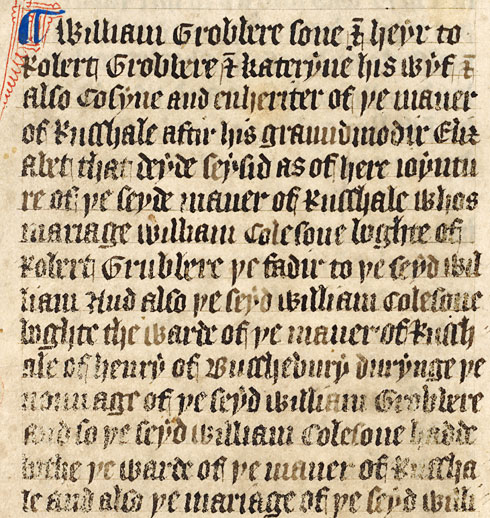
Notes relating to the history of Rushall, Me LM 1, f. 4v
External evidence of book ownership includes details in wills and inventories of book collections (often along with other household items). However, catalogues of personal, rather than institutional libraries, are relatively rare in the Middle Ages.
Next page: Handwriting styles